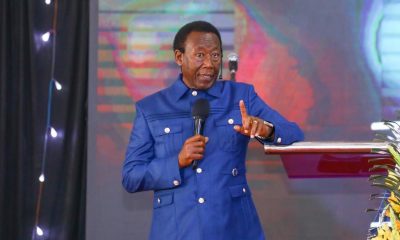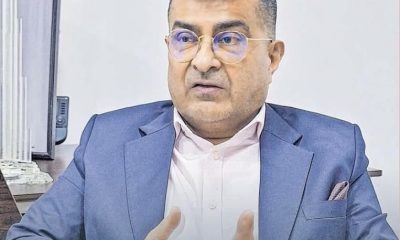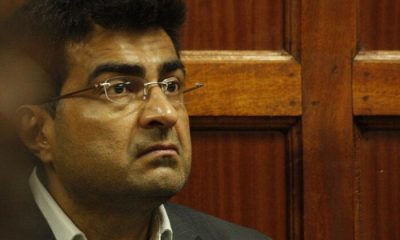News
US, UK Freezes Pattni’s Assets Over Links To Gold Smuggling And Money Laundering
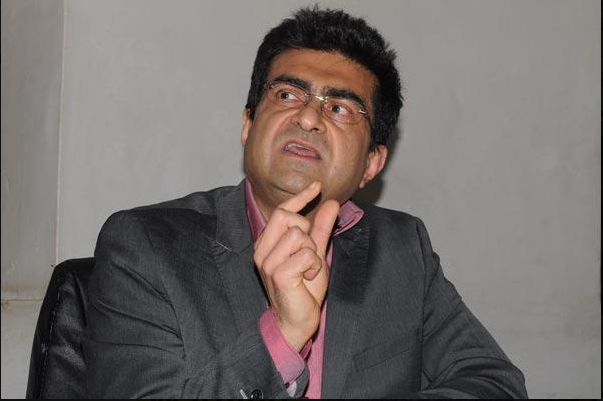
The United Kingdom has announced sanctions against Kenyan businessman Kamlesh Pattni for money laundering through gold exports from Southern Africa.
Sanctions have also been imposed on Pattni’s wife and brother-in-law Mukesh Mansukhlal Vaya for their involvement in Russian money laundering activities via the United Arab Emirates.
Pattni is accused of orchestrating illicit activities through bribery, deploying loyal associates to conceal ownership, and creating a web of businesses to disguise the origins of illegal transactions.
“Kamlesh Pattni is an involved person within the meaning of the Global Anti-Corruption Sanctions Regulations 2021 on the basis of the following ground: Pattni is or has been involved in being responsible for or engaging in serious corruption. Specifically, Pattni has been responsible for and engaging in serious corruption, namely bribery, in support of his illicit gold trading enterprises,” the UK government states on its sanctions list.
During public inquests, former President Daniel Arap Moi was mentioned as one of the powerful politicians who facilitated payments in billions to Goldenberg International and its subsidiaries. Mr Pattni was charged but later acquitted.
A statement from the UK government noted that the sanctions aim to disrupt and deter the illicit gold trade by freezing the assets of Pattni and his associates, who were implicated in the Goldenberg corruption scandal in the 1990s.
The UK government emphasized that illicit gold trade undermines legitimate markets, fueling corruption, eroding the rule of law, and entrenching human rights abuses such as child labor.
Mr Pattni allegedly used Suzan General Trading to claim incentives from the Zimbabwe government, under a programme intended to boost mineral exports.
In its claim documents, the dossier shows, Suzan General allegedly inflated the amount of gold it exported from Zimbabwe.
The move will see Washington DC seize all assets owned in the US by Mr Pattni, and all individuals and companies on the sanctions list.
Under US law, people holding any assets on their behalf in the US are required to surrender them to the Office of Foreign Assets Control (OFAC).
“As a result of today’s action, all property and interests in property of these targets that are in the United States or in the possession or control of US persons must be blocked and reported to OFAC. In addition, any entities that are owned, directly or indirectly, 50 percent or more by one or more blocked persons are also blocked,” the statement from the US Treasury reads in part.
“OFAC’s regulations generally prohibit all dealings by US persons or within the United States (including transactions transiting the United States) that involve any property or interests in property of blocked or designated persons.”
Individuals sanctioned by the US alongside Mr Pattni and his brother-in-law Mr Vaya, nephew Mishaal Hitesh Pattni, suspected right-hand man Sanjay Keshavji Vaya, Raj Vaya Sanjay, Rahul Sood, David Paul Crosby and Dmytro Abakumov.
The companies sanctioned are Rubini Investments (British Virgin Islands), Manurama Ltd (Kenya), Samaria Holdings Ltd (UK), Suzan General Trading (PVT) Ltd, Skorus Investments (PVT) Ltd (Zimbabwe), Mirdk Fyuels 0500, Royal Sona 0500, Sakhara Petroleum 0500, Supreme Ef Iks 0500 (Kyrgyzstan), Fiza Gold and Bullion Trading LLC, Golden Luxury Jewellery Trading LLC, Marwa Investments Ltd, Memories Golden Jewellery LLC, Precious Bullion DMCC, Rubini Investment Group Ltd, Ruhmeer Diamonds DMCC, Samaria Holdings Ltd, Sun Multinational DMCC, Sun Star Travel & Tourism LLC and Suzan General Trading JLT (UAE).
In a statement marking International Anti-Corruption Day, the US Department of the Treasury’s Office of Foreign Assets Control (OFAC) condemned the network, alleging it deprived Zimbabwe’s citizens of the benefits of their natural resources while enriching corrupt officials and criminal enterprises.
“Across the globe, when corrupt actors like Pattni exploit gaps in governance to benefit themselves and their cronies, communities suffer and public trust is eroded,” said Bradley T. Smith, Acting Under Secretary of the Treasury for Terrorism and Financial Intelligence.
He added, “Corruption respects no borders, and its consequences are felt worldwide. As we observe International Anti-Corruption Day, the United States reaffirms its commitment to using all available tools to hold such individuals accountable.”
The action, coordinated with the Federal Bureau of Investigation (FBI) and the United Kingdom, underscores a global crackdown on corruption and illicit financial networks.
Additionally, the UK stated that Russia uses the illicit gold trade to launder money and evade sanctions, thereby supporting President Vladimir Putin’s war efforts.
The UK also sanctioned Belgian gold trader Alain Goetz, who oversees gold refineries and companies across Africa.
Goetz is accused of smuggling gold mined in the Democratic Republic of the Congo (DRC) by armed groups implicated in severe human rights violations.
His sanctions fall under the Democratic Republic of the Congo (Sanctions) (EU Exit) Regulations 2019.
Additionally, Anto Joseph, CEO of several gold trading companies, including Paloma Precious, was sanctioned under the Russia (Sanctions) (EU Exit) Regulations 2019.
The UK alleges that Paloma Precious has purchased over $300 million worth of Russian gold, indirectly financing the Russian government and its war in Ukraine.
“Paloma Precious’ transactions have contributed to revenue streams that could fund Russia’s war efforts,” the statement read.
UK Foreign Secretary David Lammy emphasized the threat posed by corruption to national and international security.
“It[corruption] enables the activities of dictators, smugglers and organised criminals around the world, making our streets less safe and our borders less secure,” Lammy said.
Lammy also referenced the recent ouster of Syria’s Bashar al-Assad, claiming his regime had been sustained by proceeds from the illegal Captagon drug trade.
The UK government pledged to intensify efforts to combat corruption. Lammy announced additional funding for the National Crime Agency’s International Corruption Unit and welcomed Baroness Hodge as the UK’s Anti-Corruption Champion.
The UK described illicit gold trade as a threat to legitimate commerce, fueling corruption, undermining the rule of law, and perpetuating human rights abuses like child labor.
The government also accused Russia of leveraging illicit gold to evade sanctions and fund President Vladimir Putin’s war in Ukraine.
To address these challenges, the UK announced plans to develop a comprehensive anti-corruption strategy by 2025.
The initiative will involve collaboration across government, law enforcement, private sector, civil society, and academia to create a unified national response.
The sanctions follow Operation Destabilize, a major investigation by the National Crime Agency (NCA) that exposed Russian money laundering networks linked to organized crime globally.
Kenya Insights allows guest blogging, if you want to be published on Kenya’s most authoritative and accurate blog, have an expose, news TIPS, story angles, human interest stories, drop us an email on [email protected] or via Telegram
-
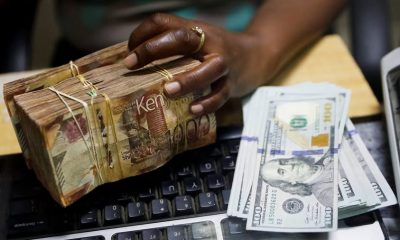
 Business2 weeks ago
Business2 weeks agoManager Flees Safaricom-Linked Sacco As Fears Of Investors Losing Savings Becomes Imminent
-

 Investigations5 days ago
Investigations5 days agoBillions Stolen, Millions Laundered: How Minnesota’s COVID Fraud Exposed Cracks in Somali Remittance Networks
-

 News6 days ago
News6 days agoUS Moves to Seize Luxury Kenya Properties in Sh39 Billion Covid Fraud Scandal
-

 Investigations5 days ago
Investigations5 days agoJulius Mwale Throws Contractor Under the Bus in Court Amid Mounting Pressure From Indebted Partners
-

 News6 days ago
News6 days agoMAINGA CLINGS TO POWER: Kenya Railways Boss Defies Tenure Expiry Amid Corruption Storm and Court Battles
-

 Americas5 days ago
Americas5 days agoUS Govt Audits Cases Of Somali US Citizens For Potential Denaturalization
-

 Americas5 hours ago
Americas5 hours agoTrump Says US Needs Greenland For Its National Security
-

 Sports1 hour ago
Sports1 hour agoWhat Makes Yesplay the Go-To Gambling Platform for South Africans?

